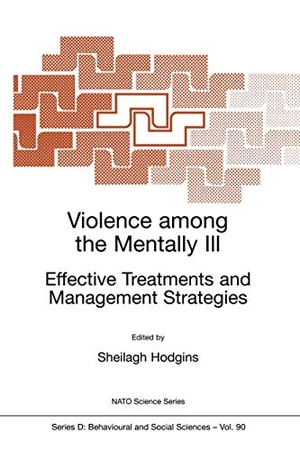Für statistische Zwecke und um bestmögliche Funktionalität zu bieten, speichert diese Website Cookies auf Ihrem Gerät. Das Speichern von Cookies kann in den Browser-Einstellungen deaktiviert werden. Wenn Sie die Website weiter nutzen, stimmen Sie der Verwendung von Cookies zu.
Cookie akzeptieren
Violence among the Mentally III
- Springer Netherlands
- 2000
- Gebunden
- 436 Seiten
- ISBN 9780792364375
The NATO Advanced Study Institute on the Prevention of Crime and Violence Among the Mentally III was held in May 1999 in Tuscany, Italy. Participants from 15 countries attended. Since care for persons with mental illness (schizophrenia, major depression, bipolar disorder, delusional disorder, atypical psychoses) has been deinstitutionalized, some persons with these disorders are committing crimes and serious violence. Consequently, societies around the world are confronted with a new challenge: to provide mental health care and social services to mentally ill persons in a humane way that will prevent illegal behaviours. Research in this field has been dominated by investigations designed to improve clinicians' accuracy in
Mehr
Weniger
zzgl. Versand
in Kürze